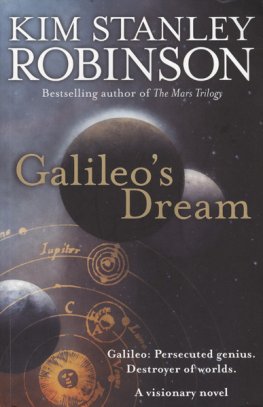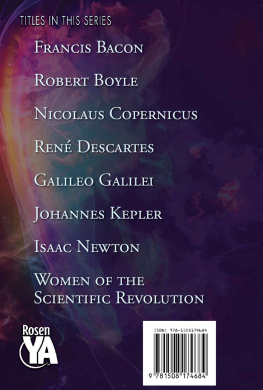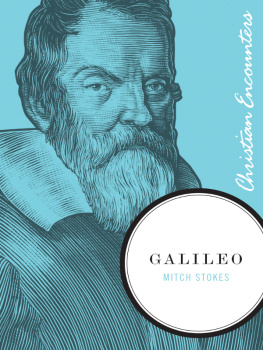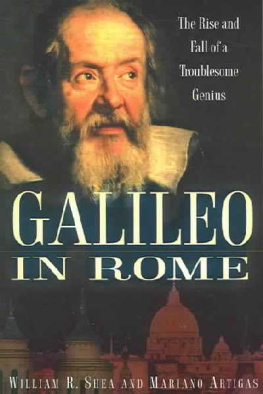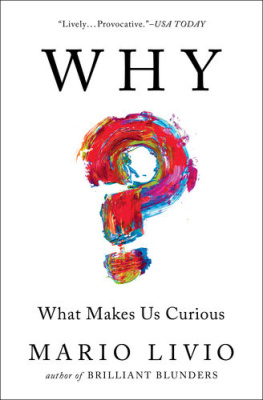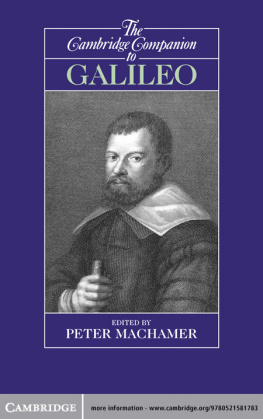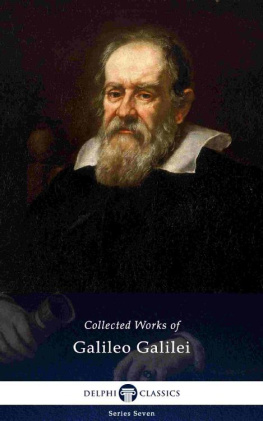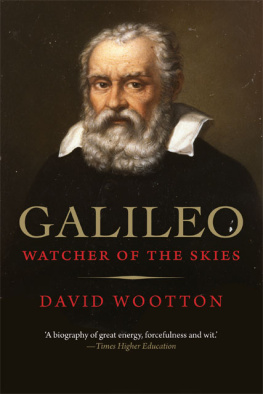The Case of Galileo
A Closed Question?
ANNIBALE FANTOLI
Translated by George V. Coyne, S.J.
University of Notre Dame Press
Notre Dame, Indiana
Copyright 2012 by University of Notre Dame
Notre Dame, Indiana 46556
www.undpress.nd.edu
All Rights Reserved
E-ISBN: 978-0-268-07972-7
This e-Book was converted from the original source file by a third-party vendor. Readers who notice any formatting, textual, or readability issues are encouraged to contact the publisher at
For Marcello
Contents
The reason I feel especially privileged to present this work of Annibale Fantoli is found in the fact that it responds in my opinion in an exemplary way to the wish of John Paul II in his 1979 address on the occasion of the centenary of the birth of Albert Einstein, when he spoke of desiring to establish a commission to restudy the Galileo Affair:
I hope that theologians, scholars, and historians, animated by a spirit of sincere collaboration, will study the Galileo case more deeply and in a loyal recognition of wrongs from whatsoever side they came, will dispel the mistrust that still opposes in many minds a fruitful concord between science and faith, between the Church and the world.
Fantoli is already well known among Galileo scholars for his extensive volume, originally in Italian: Galileo: For Copernicanism and for the Church. That book is already in its third edition in English and has been translated into Russian, Polish, French, Portuguese, Spanish, and Japanese. In fact, the revisions appearing in the third English edition of 2003, many of them quite significant, inspired Fantoli to prepare this new publication, which offers to the general educated public, who are not necessarily Galileo scholars, a clear updated synthesis of the many complex cultural factors that have shaped the history of the Galileo Affair. It is one of the best presentations available to the general public. Fantoli has the rare talent of combining a profound respect for the Church with an equally deep respect for historical truth; and he does that without assuming an apologetic posture.
This talent of his is particularly evident in the final part of this volume where he describes the history following the condemnation of Galileo up to our own times. It is the history of a Church that continues to bear the heavy burden of the Galileo Affair because of its constant preoccupation with saving its good name, while unwilling to accept, without shadowy compromise and veiled formulations, its own responsibility in the affair.
We have the good fortune to live in times when the dialogue among science, philosophy, and theology is heartily encouraged. Galileo did not have that good fortune. He had to battle from more than one trench. With the passage of time he has been proved correct. After having been defeated temporarily, he has triumphed, as history has subsequently confirmed, on his own merits on all fronts. It is a tribute to Fantoli to have shown clearly the special significance of this posthumous triumph of Galileo by dramatically showing that, in fact, it was precisely the lack of true dialogue that led to the tragic errors that caused such great suffering to Galileo and so much damage to the Church. Fantolis work makes a significant contribution to this much sought after dialogue by teaching us that only humility and a sense of freedom can create in the human spirit the propensity to recognize the truth from whatever side it comes, an essential condition to avoiding future cases such as that of Galileo.
George V. Coyne, S.J., Director, Vatican Observatory
Castel Gandolfo, Rome, September 2005
After the publication of my work Galileo: Per il Copernicanesimo e per la Chiesa, published by the Vatican Observatory in 1993, friends suggested that I prepare a shorter version of it, aimed at a wider, nonspecialized public. In the following years, however, I was busy with the translations of the book into several languages, among which the English version, Galileo: For Copernicanism and for the Church, appeared in 1994, with a third edition in 2003. It was only towards the end of this period that I was able to prepare a shorter version, which appeared in Italian with the title Il caso Galileo (2003) and is now presented in its English translation.
This work follows in its main lines the text of the above-mentioned third English edition, except for the first part, which has been completely restructured. The very numerous and long notes have been eliminated, and the most important incorporated in the text in an abridged form. Further improvements have been introduced, taking into account the third Italian edition of my original book, which appeared in March 2010. All this will help, I hope, to give to the cultivated reader a better understanding of the complex philosophical, theological, and scientific factors that played such a decisive role in the origin and in the following development of the Copernican issue, with Galileos drama at its center. Furthermore, it will show how difficult was the long road that brought the Catholic Church to a final admission (even though a very cautious and not fully satisfactory one) of its responsibility for the whole Galileo Affair.
I wish to express here all my gratitude to Father George V. Coyne, S.J., who while still director of the Vatican Observatory, wrote the Presentation of the book on the occasion of its first publication in Italian, and was subsequently able to find the time to translate this work into English, as he had already done on the occasion of all my previous works. I am also extremely grateful to Professor Wilbur Applebaum and to Naomi Polansky for their very generous, patient, and accurate review of the English text, and the many precious suggestions they have made concerning it. Last, but not least, my thanks go also to the University of Notre Dame Press, for the decision to publish this book, a decision that highly honors me.
Finally, let me add a brief note about citations in the text. I did not want to overburden readers of this volume with the scholarly apparatus present in my other, fully annotated volume on Galileo. Thus references in this volume use a short form providing basic author and title information; fuller information for those sources can be found in the . Except where noted otherwise in the citations, translations from documents contemporary to Galileo have been made by Father Coyne.
Victoria, British Columbia, December 2010
It is June 22, 1633, in the morning. In a hall of the convent of Santa Maria sopra Minerva in Romes historical center, an accused man, on his knees before seven cardinals and officials of the Congregation of the Holy Office as witnesses to the proceedings, listens to the decree of condemnation:
We, Gasparo Borgia [et al.] , by the grace of God, Cardinals of the Holy Roman Church, and especially commissioned by the Holy Apostolic See as Inquisitors-General against heretical depravity in all of Christendom say, pronounce, sentence, and declare that you, the above-mentioned Galileo, because of the things deduced in the trial and confessed by you as above, have rendered yourself according to this Holy Office vehemently suspected of heresy, namely of having held and believed a doctrine which is false and contrary to the divine and Holy Scripture: that the sun is the center of the world and does not move from east to west, and the earth moves and is not the center of the world, and that one may hold and defend as probable an opinion after it has been declared and defined contrary to Holy Scripture. Consequently you have incurred all the censures and penalties imposed and promulgated by the sacred canons and all particular and general laws against such delinquents. We are willing to absolve you from them provided that first, with a sincere heart and unfeigned faith, in front of us you abjure, curse, and detest the above-mentioned errors and heresies, and every other error and heresy contrary to the Catholic and Apostolic Church, in the manner and form we will prescribe to you.


